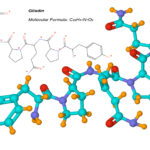by Annette Pinder
“Many people mistakenly believe that memory loss is a normal part of aging, but that’s a myth,” says Dr. Paul Newhouse, Director of the Center for Cognitive Medicine at Vanderbilt University Medical Center. Newhouse is the principal investigator of a two-year clinical study known as MIND (Memory Improvement through Nicotine Dosing) funded by the National Institutes of Health. According to Newhouse, one in seven adults aged 65+ have mild cognitive impairment (MCI), a cognitive state between normal aging and early Alzheimer’s disease, that increases their risk of developing Alzheimer’s disease and other dementias. MCI affects memory, language, thinking, and judgment in enough ways to be noticed by the affected person and by family members and friends.
Bernie Liebman, who is 87 years old, enrolled in the MIND study at the suggestion of his local physician. Connecting with Liebman over Zoom, I found him to be intelligent, engaging, and quick-witted. He loves reading, great food, attending lectures, and going for walks. Now retired, he had worked as a down feathers specialist, and had also lived close to my old neighborhood in Brooklyn. We laughed and shared similar experiences. Although Liebman realizes that only half of MIND Study participants are receiving the real nicotine patch rather than a placebo, he is convinced that he has never felt better. “Put it this way,” he says, “I completed last night’s Wordle in only four tries!”
Kinga Szigeti, MD, PhD, principal investigator of the MIND study in Buffalo, and director of UB’s Alzheimer’s Disease and Memory Disorders Center, is excited about repurposing nicotine patches for memory issues. “Since the patch is FDA approved for smoking cessation, we have a significant amount of information regarding its safety.” Realizing that some people may be hesitant to join a study involving nicotine, since smoking risks are well known, she reminds people that, “Nicotine isn’t what causes cancer, heart disease, or respiratory illness. It’s the tar and thousands of other chemicals in cigarettes that do.” In fact, nicotine has been used in memory studies for more than 30 years, and researchers believe that, when not associated with smoking, it can stimulate the brain systems for memory and attention.
MIND Study participants must be healthy, non-smoking adults aged 55 or older, and must be screened. They will need to wear a nicotine patch during the day, and visit their local clinical research site once every three months for approximately two years. They also require a study partner — a family member, close friend, or caregiver — to accompany them to visits. Half of all participants will receive the nicotine patch, and half will receive a patch without nicotine (a placebo). All participants will have their health monitored throughout the study, and all information is confidential. Not only will they possibly benefit from the treatment, but they will also receive free healthcare, a complete physical and neurological exam, and bloodwork.
Western New York residents who wish to enroll in the MIND study should call Natalie Argueta at 716-323-0549, or email her at nargueta@buffalo.edu. Learn more at www.MINDstudy.org, or call 1-866-MIND-150.












